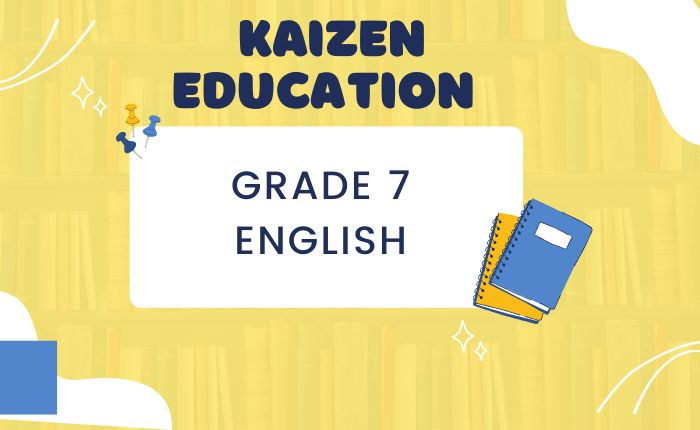
$
$100.00$
Updated:
Year 7 English
Our year 7 English course is designed with the most up to date and industry leading resources.
Overview
Students develop their skills in reading and analysing more complex English literacy texts such as novels and poems. Students will develop their skills for analysing films and other text types such as plays, poetry and non-fiction writing.
Students must understand:
- Vocabulary: Correctly spell and use words
- Grammar and syntax: How to form and describe sentences and parts of speech
- Mediums of production: The types of texts eg. Novels, films and plays etc
- Textual form: the exact form of a textual medium, eg a first person novel.
- The genre of a text. For example, a science fiction film or horror novel
- Literary, rhetorical, filmic and dramatic techniques and devices
- Context: the circumstances surrounding the context of the text. Eg Historical, economic, personal etc.
Writing/ responding
Students must learn to produce responses in a variety of modes:
- paragraphs
- Extended response and essays
- feature articles
- Speeches and presentations
- Creative writing
- Poetry
Self reflection
- What you found easy
- What you found difficult
- What you think you did well
- what yo think you did poorly
- What you could do differently to improve next time
Key skills
- reading
- Spelling difficult words
- Grammatical rules
- Writing complex sentences
- Composing paragraphs
- Constructing narratives
- Giving short speeches and presentations
What You’ll Learn?
Course Syllabus
Biographies, diaries, and life writing
16 Lessons0 Quiz
Grammar , parts of speech , Tenses
13 Lessons15 Quizes
Reading Comprehension, articles , media
18 Lessons1 Quiz
Vocabulary
4 Lessons10 Quizes
Punctuation and writing
35 Lessons6 Quizes
Certification
Meet Your Instructor
Student Review
0
Similar Courses
0

Start your journey with free trial
Interactive courses designed to take your skills to the next level, anytime, anywhere

